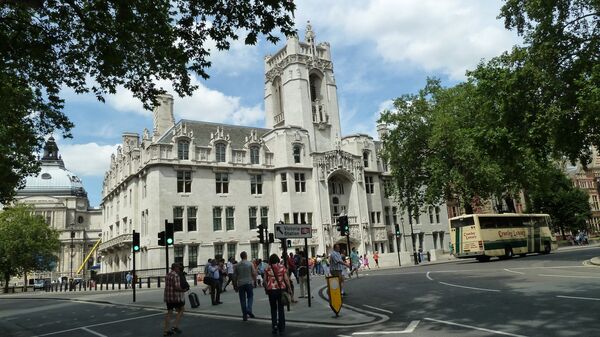The case is scheduled to last three days, and follows separate cases brought against the Government over the Prime Minister's controversial advice to the Queen to prorogue Parliament until 14th October. Critics have claimed the timing has been used to shut out MPs from the Brexit process.
The Supreme Court panel will decide whether to back the Scottish Court of Sessions's ruling that prorogation was unlawful, or a separate judgment in England which concluded it was a political issue, and not for the courts to interfere.
Judicial Review
The Inner House of the Court of Session in Edinburgh found the Prime Minister’s advice to the Queen was unlawful. The case was brought by a cross-party coalition of 75 MPA trio of judges ruled the suspension’s purpose was “to stymie parliamentary scrutiny of the executive, which was a central pillar of the good governance principle enshrined in the constitution”.
"The Lord President, Lord Carloway, decided although advice to Her Majesty the Queen on the exercise of the royal prerogative of prorogating Parliament was not reviewable on the normal grounds of judicial review, it would nevertheless be unlawful if its purpose was to stymie parliamentary scrutiny of the executive, which was a central pillar of the good governance principle enshrined in the constitution; this followed from the principles of democracy and the rule of law,” they explained.
If the Supreme Court upholds the judgment, the Commons could reconvene immediately, and opening up Johnson and his Brexit maneuvering to intense parliament scrutiny. Moreover, by finding the prorogation was unlawful, it would mean parliament was never actually suspended, and the passage of bills from the last session would continue as before.
Conflicting Conclusions
A separate challenge to the prorogation brought by Remainer activist Gina Miller was quashed by the High Court of England and Wales prior,however, on the grounds the issue was “political” and therefore a “non-justiciable exercise of prerogative power”, suggesting courts didn’t have a role in resolving the issue. Miller’s team argued it was an "unlawful abuse of power" and one in violation of the legal principle of parliamentary sovereignty.
Miller’s QC Lord Pannick said the suspension was "extraordinary" because of its "exceptional length” and Parliament being "silenced" in the crucial weeks up until the deadline. The Court begged to differ.
"We concluded the decision of the Prime Minister was not justiciable…It is not a matter for the courts. The Prime Minister's decision Parliament should be prorogued at the time and for the duration chosen and the advice given to Her Majesty to do so in the present case were political. They were inherently political in nature and there are no legal standards against which to judge their legitimacy. It is impossible for the court to make a legal assessment of whether the duration of the prorogation was excessive by reference to any measure,” the Court’s judgment said.
Calm Before Stormfront
Further complicating things, a judge at the Belfast High Court has rejected claims a no-deal Brexit would breach the Good Friday Agreement, in a case brought by Raymond McCord, a campaigner whose son was killed by loyalist paramilitaries.
Lord Justice Bernard McCloskey dismissed the argument against prorogation on the basis it was already at the centre of the cases in England and Scotland.
“I consider the characterisation of the subject matter of these proceedings as inherently and unmistakably political to be beyond plausible dispute. Virtually all of the assembled evidence belongs to the world of politics, both national and supra-national,” he said.
Confusing Matters
The UK Supreme Court’s ruling is by definition uncertain, but one eventuality could – quite amazingly - be finding in favour of both rulings. While Scotland and England are ultimately governed from Westminster, their legal systems are not precisely analogous or consistent, so both rulings could be applicable simultaneously – in other words, Johnson’s actions could be legal under English law, and illegal under Scottish law.
This would however spark a major constitutional debate, over whether something being legal or illegal in one constituent part of the UK makes it legal or illegal across the country as a whole, and how this can be determined.
Ministers have pledged to abide by the Supreme Court's ruling, whatever the outcome. Should the Court find in favour of Downing Street, Johnson will be vindicated in a major way.


